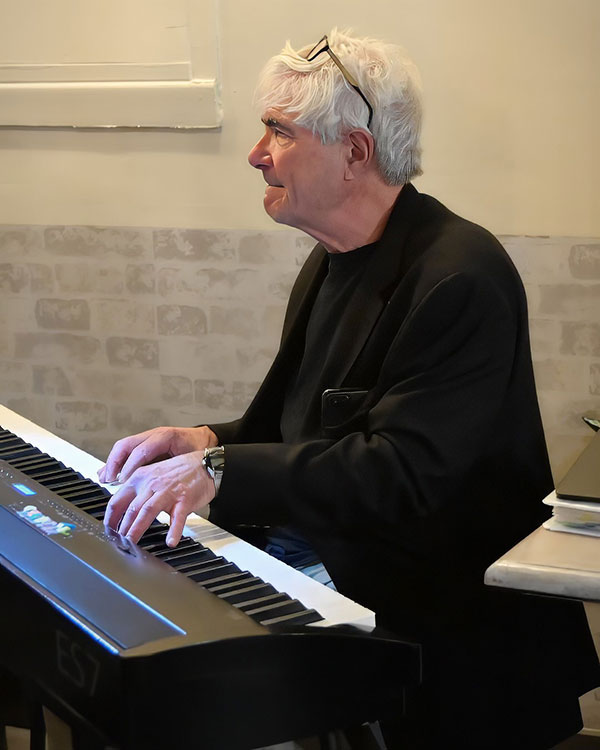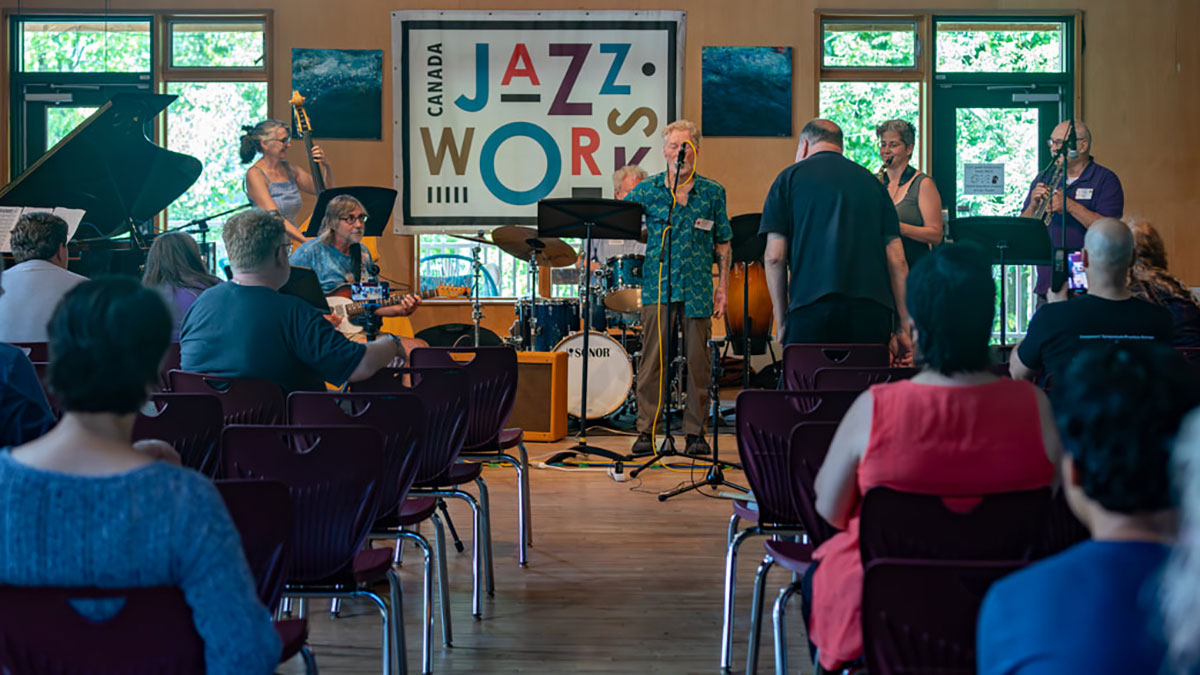The “city that fun forgot” may just be the city that forgot jazz — at least when it comes to places to perform. According to Trip Advisor, only two places in Ottawa are termed “jazz clubs” or “jazz bars” and one of them, the Earl of Sussex, recently closed.

Karl Nerenberg, a Canadian journalist, broadcaster and amateur jazz pianist, told Capital Current that the city’s lack of designated jazz spaces is “disappointing and sad, to say the least.”
Nerenberg who is part of a jazz band called restez à l’écoute, is one of the many players who sees a need for more jazz-specific venues.
The pianist said that these days spaces, often restaurants, that book live jazz bands are closing or ceasing jazz-related operations.
“I would like to see another jazz-dedicated venue like the much-missed jazz and supper club called Café Paradiso,” Karen Oxorn, a jazz vocalist based in Ottawa, told Capital Current. “But there are a few places like Zolas and Festival Japan that occasionally fill the void.”
The landscape of jazz offerings in Ottawa
While Ottawa does feature a handful of venues that support jazz performances, the city lacks dedicated spaces for the genre, some performers say.
Betty Ann Bryanton, an Ottawa-based jazz vocalist, says the city “pales in comparison to Toronto and Montreal. Toronto has The Rex and the Jazz Room. Montreal has Upstairs and Dieze Onze. These are restaurant-bars that cater to jazz, and where listeners are asked to do just that — listen.” Bryanton said.
“Ottawa doesn’t really have dedicated jazz venues, and the one we have, being in a hotel, draws crowds that aren’t necessarily there for the music — which is understandable, but it just points to Ottawa’s need for something more.'”
And, Bryanton says, spaces that used to feature a variety of jazz vocalists, have seen their live music offerings streamlined to a narrower range of acts.
Most of the city’s jazz venues are restaurants that book bands on occasion. The absence of larger, dedicated venues hinders the city’s ability to foster a thriving jazz culture, performers say.
The challenge of engagement
One of the key obstacles facing Ottawa’s jazz community is how the genre is perceived and consumed. Karl Nerenberg says jazz is often treated as “high-class background music,” which diminishes its importance and reduces its cultural significance.
“You’d ask people who the jazz artist who was playing or singing at the restaurant they went to was, and they can never really remember. Whereas if it were Taylor Swift they would never forget that.”
You’d ask people the jazz artist that was playing or singing at the restaurant they went to and they can never really remember. Whereas if it were Taylor Swift they would never forget that.
Karl Nerenberg
This attitude is apparent to artists and audiences. John Wilson, a dedicated jazz fan and performer, remarked that, although this is the case, there are places specifically created for jazz to be played and listened to.
“GIGSPACE was specifically created for jazz, as well, and although small, is a jazz listener’s space. It’s intimate and sound-proofed, and jazz shows hosted for in-person audiences are also regularly live streamed.”
Lessons from other cities
Betty Ann Bryanton said she believes the city’s few dedicated jazz spaces are too small for a bigger turnout or too big for a limited number of enthusiasts. She sees a real need for a “in-between” space.
“Ottawa has small venues (like GIGSPACE) and large venues (like the NAC), but we lack in those in-between venues,” she says. “Recently, I was part of a show in Gatineau, at Propulsion Scène. This was a very cosy venue with low tables in the front, high tables in the back, ambiant lighting, a stage, event lighting, stage crew, and a bar. A very nice, but also very professional, environment. Ottawa now has Red Bird, which is in the same lane, but Ottawa could benefit from more of the 50-to-100 size.”
Despite the challenges, local organizations, such as JazzWorks, an Ottawa-based non-profit dedicated to the development of jazz musicianship, have been working to combat the lack of designated spaces in Ottawa for more than 30 years.
Judy Humenick, founder and executive director/producer of JazzWorks, emphasizes the importance of creating more opportunities for musicians to perform and engage with audiences.
“I started the organization in 1994 as a little weekend event, and now it’s grown into a full year-round organization. We have a jam session at the third Thursday of every month in the Festival Japan restaurant. That’s our home base for activities. We also have a small concert series called JazzWorks Presents, where we present visiting artists and some jazzworks faculty and we engage local musicians in that too.”
Humenick notes that although it’s not a jazz club, Festival Japan has a “jazz club event atmosphere.” She says the restaurant is crucial to the organization’s success, a testament to the Ottawa’s jazz community’s commitment to making do with the spaces they have.
JazzWorks has spearheaded several initiatives to keep the genre alive in Ottawa, including workshops, jam sessions, and performance opportunities for both emerging and established artists. These efforts provide a glimmer of hope for the future of jazz in the city.
A path forward
Reform looks different for each jazz enthusiast. Betty Ann Bryanton suggested that small, intimate spaces like GigSpace can be a model. Karl Nerenberg hopes Ottawa’s new Nightlife Council will see the important role jazz plays in a vibrant night life.
For Judith Humenick, “we need an entrepreneur, a restaurant owner who understands the business and can make a go of it regardless of how the jazz works out,” Humenick told Capital Current.
“Jazz doesn’t pay a lot, you know, it’s not a genre where people drink a great deal when they go to restaurants. It’s finding that sweet spot where the food isn’t too expensive, and where there’s an understanding of the music.”
JazzWorks will be celebrating its 30th anniversary and according to Humenick, it’ll be a time to unite the Ottawa jazz community.





This is such an amazing story, done beautifully
This is such an amazing story, written so well.